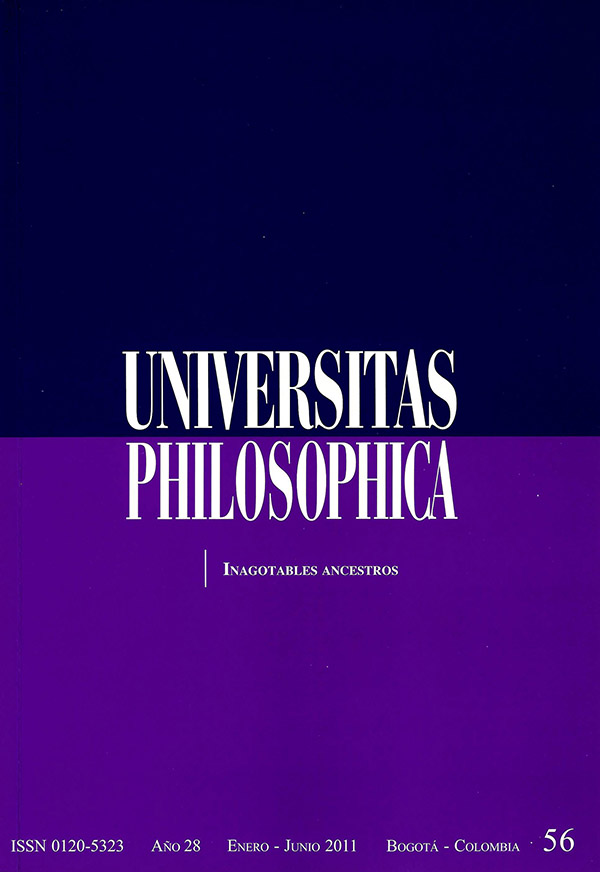Abstract
Very little room for optimism has left many bloody confrontations and natural disasters, especially in Colombia’s last decade. Does this pessimism obey to dramatic circumstances; does it have a deeper reason or which is its most devastating consequence? This essay aims to answer these questions from the oldest sentence of Western thought, that of the Milesian philosopher Anaximander: [The things that are perishing into the things out of which they come to be], “according to necessity, for they pay the penalty and retribution to each other for their injustice in accordance with the ordering of time”. Now, from Nietzsche’s and Heidegger’s interpretations of this sentence, we aim to show how: (i) this sentence is in the very origin of the Western tradition nihilistic project; (ii) how it allows us to understand why we are witnessing an era founded on the dominance of “the whole earth and atmosphere”, and (iii) how it suggests us three different interpretations of clamor for justice and reparation: from a moral sphere linking axiological and ontological elements (metaphysics); from the primacy given to the “attention and mutual agreement (in the reparation process) of disagreement, (the end of metaphysics)” or, finally, from a radical and affirmative orbit of life (beyond metaphysics).
This journal is registered under a Creative Commons Attribution 4.0 International Public License. Thus, this work may be reproduced, distributed, and publicly shared in digital format, as long as the names of the authors and Pontificia Universidad Javeriana are acknowledged. Others are allowed to quote, adapt, transform, auto-archive, republish, and create based on this material, for any purpose (even commercial ones), provided the authorship is duly acknowledged, a link to the original work is provided, and it is specified if changes have been made. Pontificia Universidad Javeriana does not hold the rights of published works and the authors are solely responsible for the contents of their works; they keep the moral, intellectual, privacy, and publicity rights.
Approving the intervention of the work (review, copy-editing, translation, layout) and the following outreach, are granted through an use license and not through an assignment of rights. This means the journal and Pontificia Universidad Javeriana cannot be held responsible for any ethical malpractice by the authors. As a consequence of the protection granted by the use license, the journal is not required to publish recantations or modify information already published, unless the errata stems from the editorial management process. Publishing contents in this journal does not generate royalties for contributors.


